S3T Dec 25 Christmas Edition: What one mountain railroad town can teach us about innovation

A special Christmas Day feature: During its heyday, Petroleum, West Virginia was a railroad-driven boom town. Today it is a few old houses sitting next to empty fields. The railroad is gone, replaced by a bike trail.
My Grandfather grew up there.
His stories from those early years, and my recent visit a few weeks ago, sit like bookends at the start and finish of a complete innovation cycle.
One that perhaps is restarting.
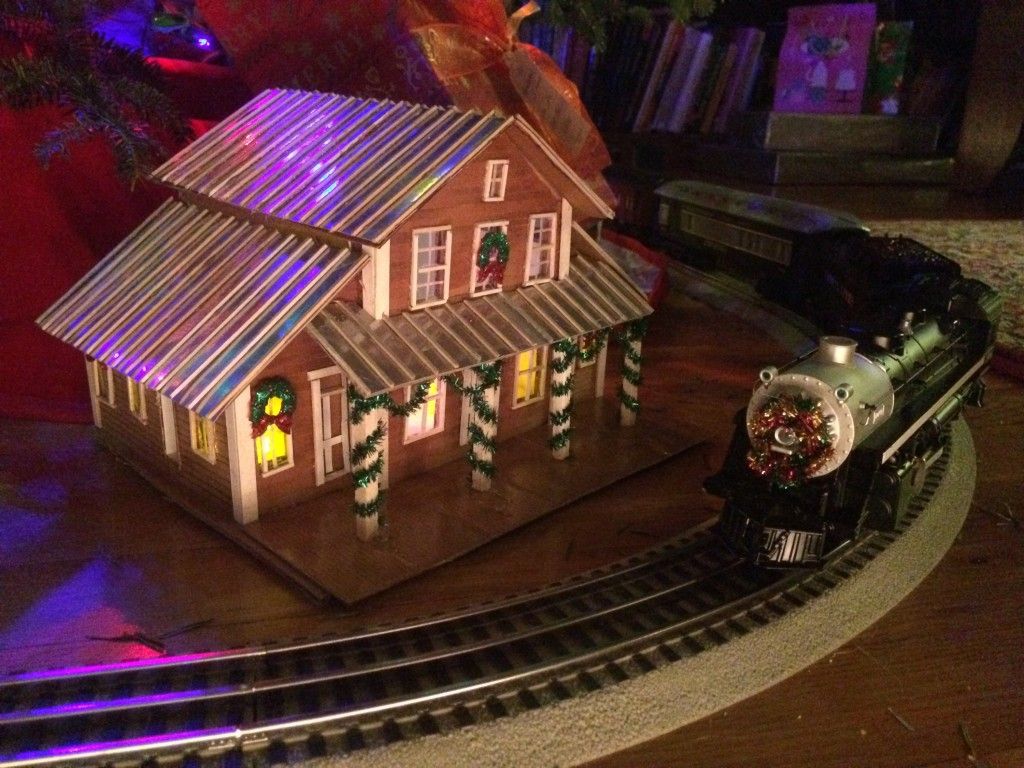
Back to Petroleum
Each Christmas we set up a model train that travels around under our Christmas tree - as shown in the photo above. This train includes several replicas of the specialized Railway Mail cars that the US Postal Service used to transport mail between cities. Next to its tracks sits a replica of an old general store.
For me, the train and the store are reminders of family history.
The general store is a handmade replica of the original H.B. Perine General Merchandise. For decades that store served the town of Petroleum, West Virginia. It owner: my Great Grandfather Henry Burton Perrine.
Here is the only surviving photo that we know of. We used it as a guide when we built the replica that sits under our Christmas tree each year.
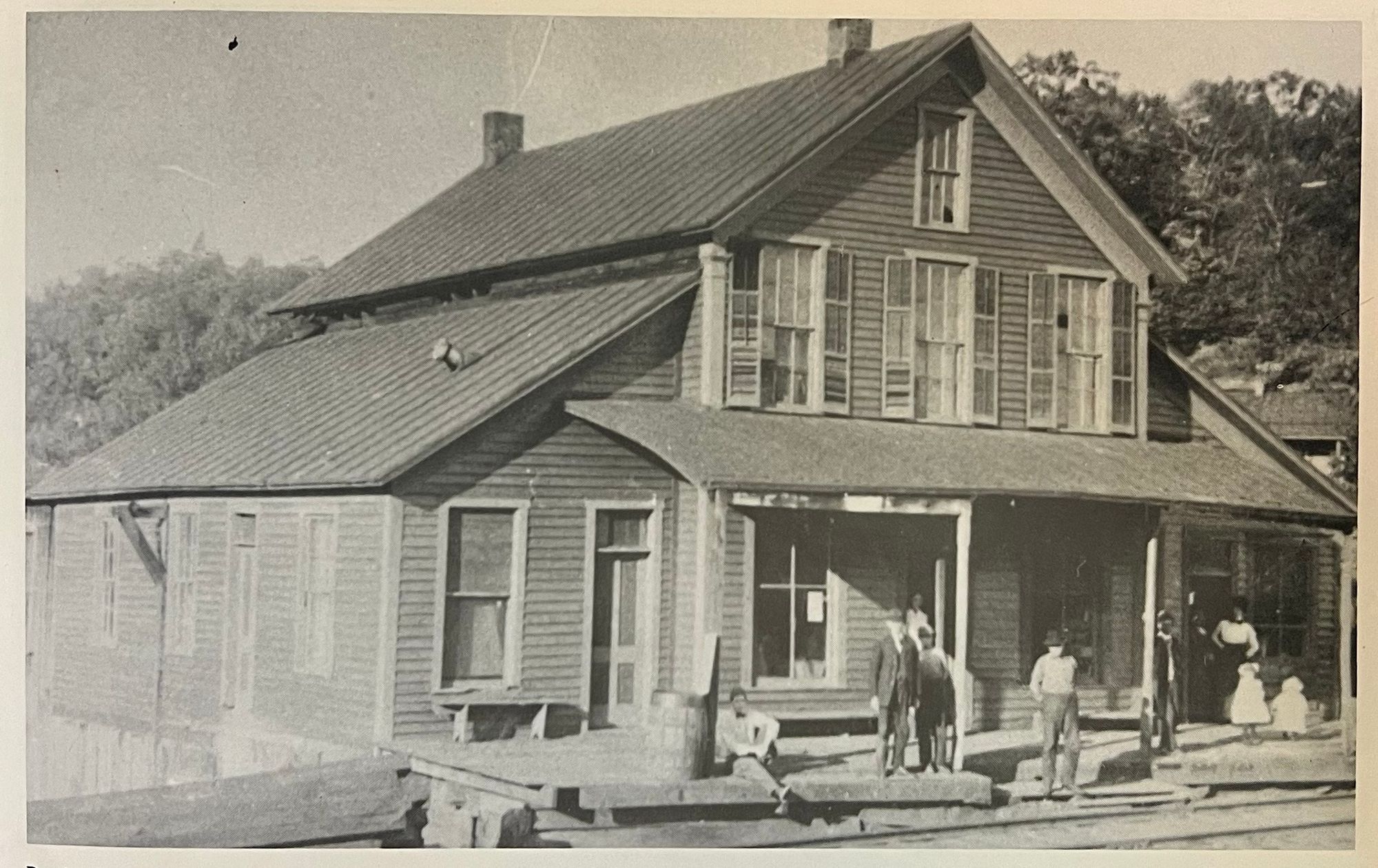
The train that runs under our Christmas tree with its Railway Mail Service railcars are reminders of the childhood dreams and subsequent career of my Grandfather, Ralph Clemens Perrine (I am named after him, as is my Dad and my son).
The Baltimore and Ohio railroad ran right past the front of this store, and when the mail trains would pass by, my Grandpa would always wave to the mail clerks standing in the open doorways of the mail cars. He dreamed of being a Railway Mail Clerk when he grew up - one of the most coveted jobs of his time. He eventually made good on that dream, spending his career as a mail clerk in the Railway Mail Service.
When Grandpa passed away in August 2000, my father and his brothers found a number of materials and photographs related to the store. Here is a check with the store letterhead from 1916:
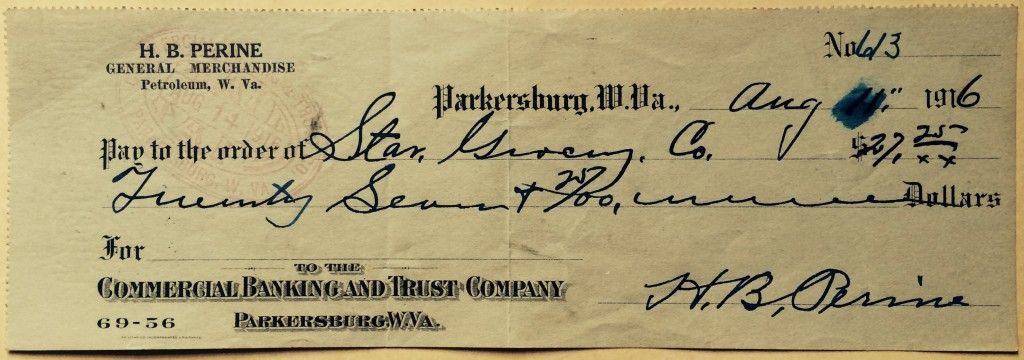
Notice that the name spelling is missing an 'r'. Thanks to the vagaries of frontier education and recordkeeping my family name was spelled Prine, Perine and occasionally Perrine until it was standardized to "Perrine" after a courthouse fire.
As a kid I used to beg my Grandpa to tell and retell stories from his growing up years working and making mischief in his Dad's store, as well as stories from his life and career working in the Railway Mail Service.
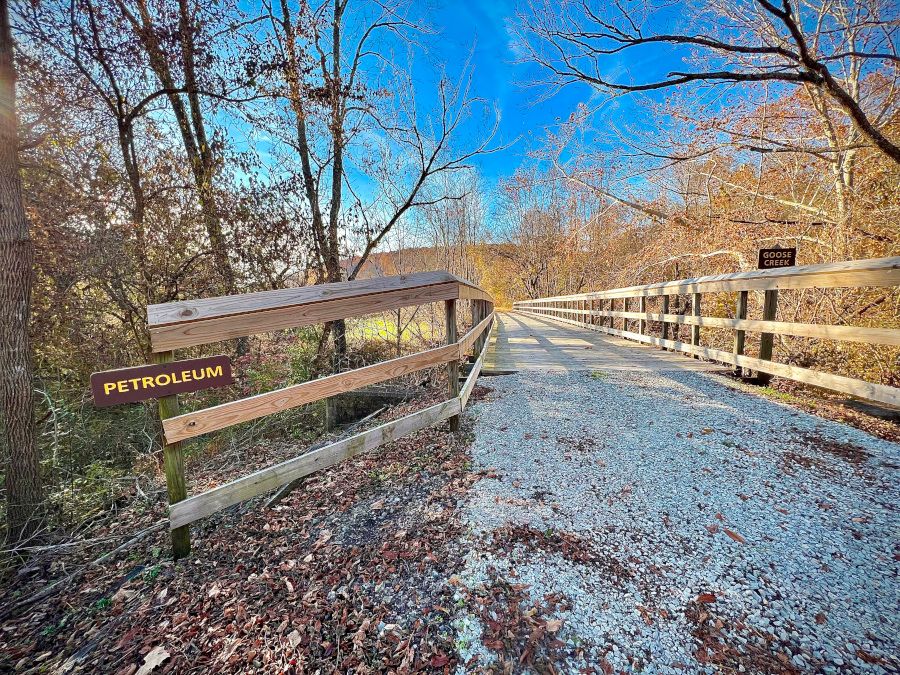
My Visit to Petroleum
This past October I was able to finally go to see the town - or what used to be the town of Petroleum - for myself. Today it is a quiet mostly empty place, a far cry from the boom town it was in its heyday.
The local folks are kind-hearted. They would stop and hear my story, and point out directions or locations of key places I was looking for. Many knew about the Perrine family and the store.
I got the sense that they had been through a lot, and had learned the hard way to check in on each other. At one point I pulled off the road to take a picture. A car pulled up alongside with the windows rolled down.
"You good?" she asked.
"Oh yeah, just taking pictures" I replied.
"Alright" She said, waved and drove off.
My Great Grandfather's store is no longer there. The railroad tracks are gone and the railroad path is now a hiking and biking trail.
When I arrived at what I believed to be the former location of the store I parked and walked up into the yard of some neighbors who had just home. I told them I was looking for the old Perrine store. They introduced themselves as Harlan Jr and Nancy. They showed me the exact location - it was similar to the location I expected based on the photos and my study of satellite maps.
Today an aluminum shed stands on the spot. The Perrine store stood there and was in operation until a fateful day in 1981. By then it was owned by someone else (my Grandpa's brother sold the store years ago) but it still had the Perrine name on it.
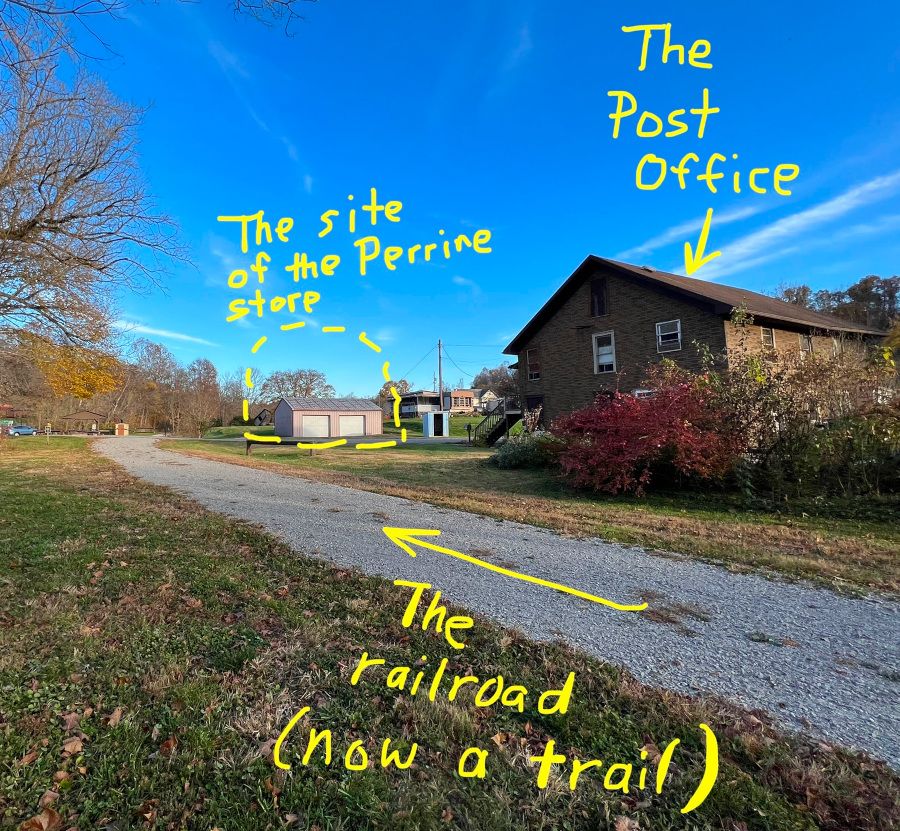
Harlan and Nancy helped me locate the railroad's old water tower - which my Grandpa used to sneak into for a cool swim during the hot summers.
They also pointed out the doctor's house - a stately blue two-story structure that figures into some of my Grandpa's stories. It still stands - someone lives there - along with a brown two-story building that used to be the Petroleum post office.
I took some time and walked up the path that used to be the railroad bed.
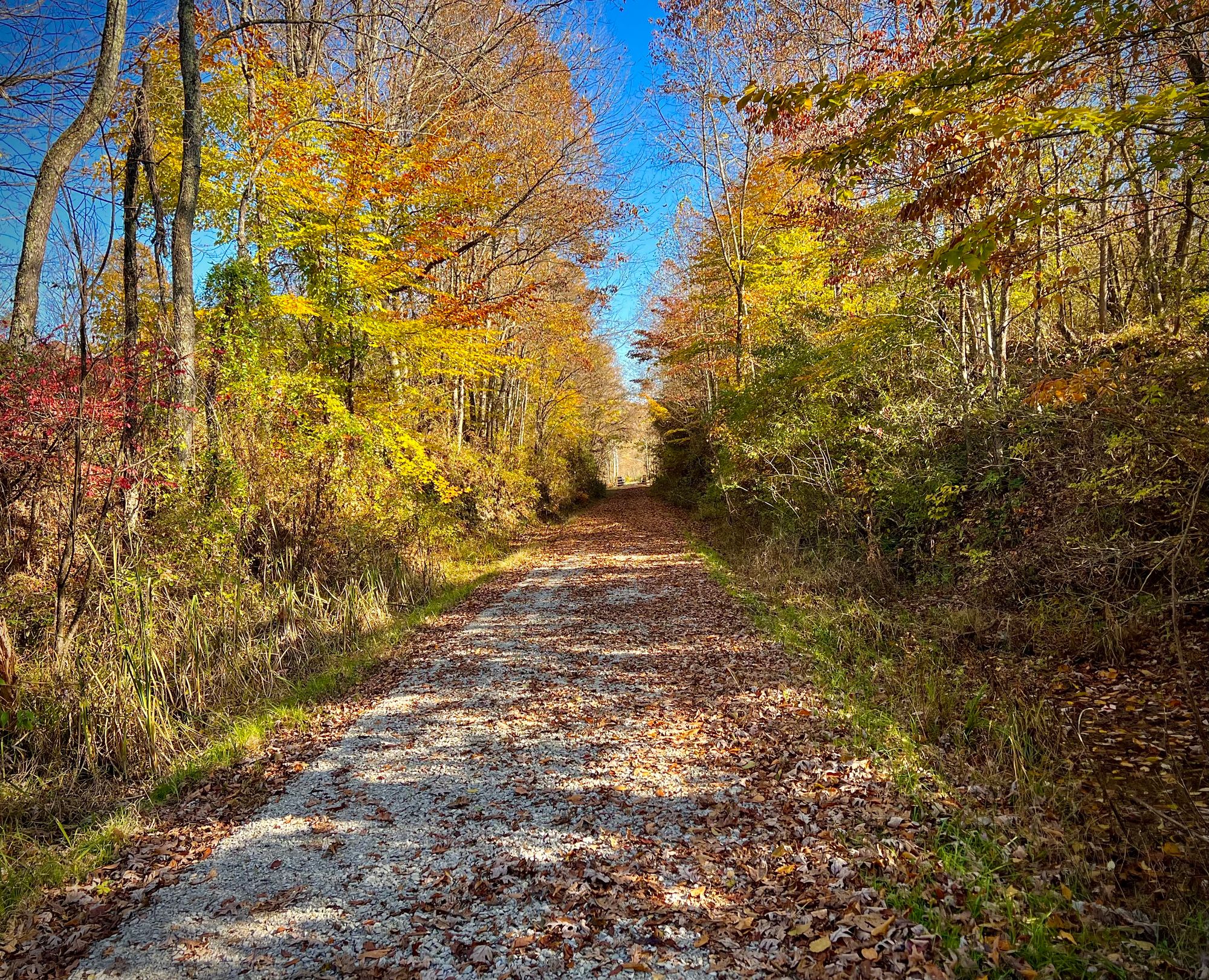
It was amazing to stand in the “cut” - the ravine cut into the hill for the railroad bed - and realize my Grandfather and his family once walked and rode these rails, did their work, and dreamed their dreams here in this place.
The End
At 6:30 PM on a rainy evening on November 20 1981, a freight train derailed and went right thru the old Perrine store, destroying it. As the local folks mulled what to do, the rats took matters into their own little hands and forced the issue. One of the train cars had spilled a large amount of corn into the basement of the store. It began to rot and attract vermin. So the decision was made to demolish the store.
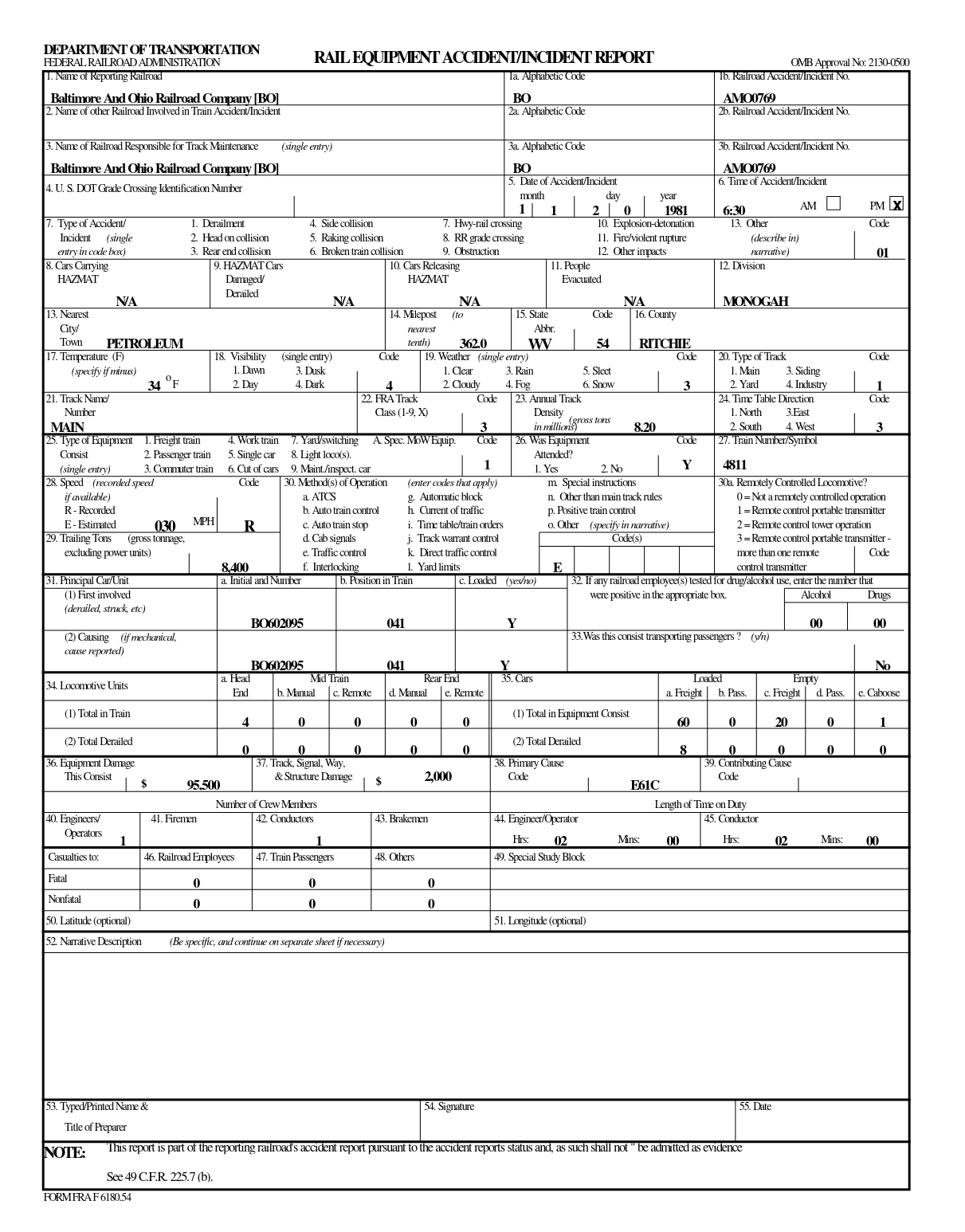
The derailment - like so many other rural railroad accidents - never made it into the news. At least I could find no mention of it in any regional or national newspaper databases from the time period. But I did find the 1 page report that the railroad filed with the Department of Transportation (shown above).
The Innovation Cycle
It's hard for us to imagine today, but trains, railroads, oil rigs, and automobiles were the high-tech innovations of the day when my Grandfather was growing up. Railroad towns grew like tech hubs.
Not everyone welcomed the innovation.
